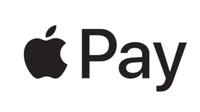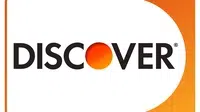Capitalism Without Capital
The Rise of the Intangible Economy






Shipping and delivery
Standard delivery: 3-5 days after dispatch
United Kingdom: GBP 2.99
- Enhanced understanding of modern economic trends.
- Improved ability to evaluate intangible assets in businesses.
- Better grasp of how technology impacts market dynamics.
- Insight into potential policy changes affecting the economy.

"The portion of the world's economy that doesn't fit the old model just keeps getting larger. That has major implications for everything from tax law to economic policy to which cities thrive and which cities fall behind, but in general, the rules that govern the economy haven’t kept up. This is one of the biggest trends in the global economy that isn’t getting enough attention. If you want to understand why this matters, the brilliant new book Capitalism Without Capital by Jonathan Haskel and Stian Westlake is about a good an explanation as I’ve seen."
― Bill Gates
“Capitalism Without Capital” is an essential read for anyone looking to grasp the fundamental changes occurring in modern economies. This book examines the rise of intangible assets and their impact on business, investment, and economic policy.
Readers will learn:
•How to identify and understand intangible assets
• The economic properties that make intangibles different from physical assets
• Why traditional accounting and economic measures struggle to capture the value of intangibles
• How the rise of intangibles affects competition, inequality, and economic growth
• Strategies for businesses and policymakers to thrive in an intangible-rich economy
The book is filled with real-world examples and case studies that illustrate the growing importance of intangible assets across various industries. Haskel and Westlake’s clear and engaging writing style makes complex economic concepts accessible to a wide audience.
“Capitalism Without Capital” offers a fresh perspective on the evolving economic landscape, providing readers with the tools to navigate and succeed in an increasingly intangible world. Whether you’re a seasoned executive, a curious investor, or simply someone interested in the future of the global economy, this book will transform your understanding of how modern capitalism functions.
Year Published
Publisher
Pages
Weight
Language
ISBN 10
ISBN 13
The book: "Capitalism Without Capital " Is perfect for:
• Business leaders and entrepreneurs
• Investors and financial analysts
• Policymakers and economists
• Students of business and economics
• Anyone interested in understanding the changing nature of capitalism and the modern economy
Meet the author
Jonathan Haskel is a distinguished British economist and professor of economics at Imperial College Business School. He serves as an external member of the Bank of England’s Monetary Policy Committee and was previously a non-executive director of the UK Statistics Authority. Dr. Haskel’s research focuses on productivity, innovation, intangible investment, and economic growth. He co-authored the influential book “Capitalism Without Capital: The Rise of the Intangible Economy,” which explores the increasing importance of knowledge-based assets in modern economies. With a PhD from the London School of Economics, Haskel has held teaching positions at various prestigious institutions, including the University of Bristol and London Business School. He has also been a visiting professor at Dartmouth College and New York University. Haskel’s expertise extends to competition policy, having served on the Competition Commission (now Competition and Markets Authority) from 2001 to 2010. He resides in London with his wife, artist Sue Haskel, and they have two daughters.
Book testimonials

“One of the year’s most talked-about books.”
― John Harris, The Guardian

“The book makes its case in a lighthearted, conversational way that will appeal to economists and non-economists alike.”
― The Economist

“For an introduction … it would be hard to do better than Capitalism without Capital, which is clear and lively and raises―without having all the answers―the relevant questions.”
― Diane Coyle, Enlightened Economist

“One of this year’s most important and stimulating economic reads…. Read this book.”
― Tyler Cowen, Marginal Revolution

“Compelling…. Haskel and Westlake have mapped the economics of a challenging new economy.”
― Martin Wolf, Financial Times



